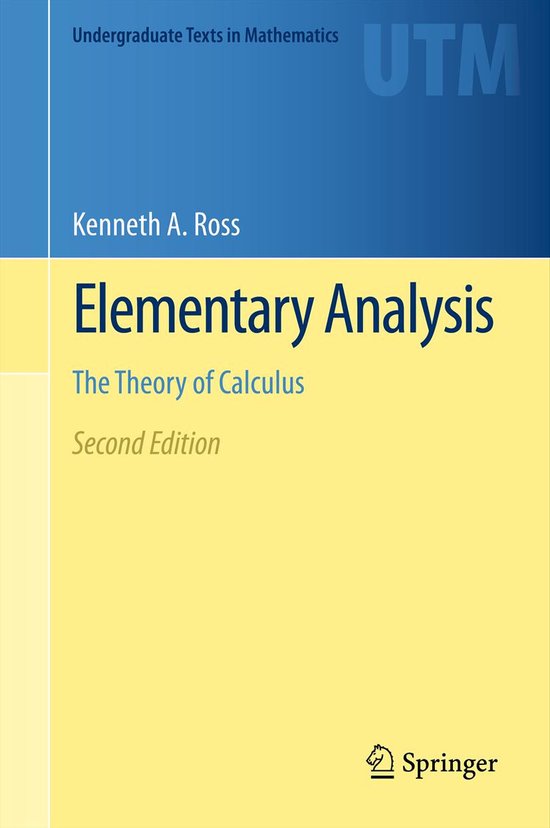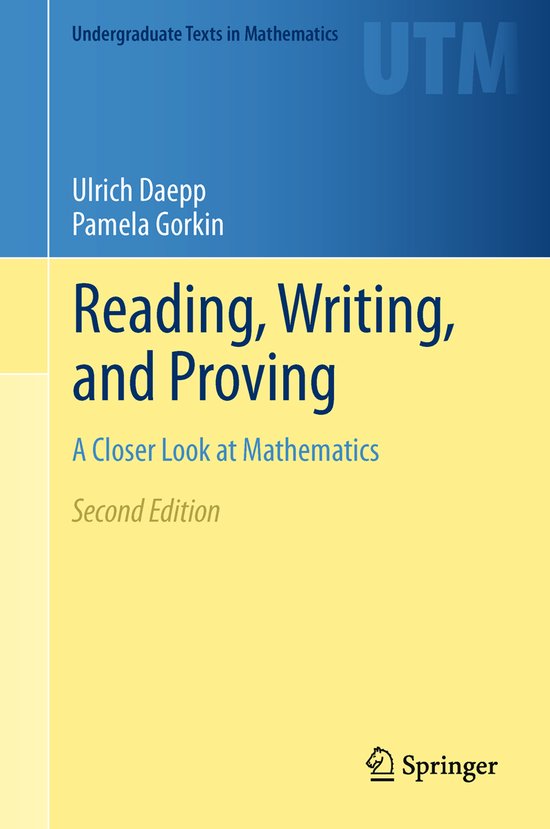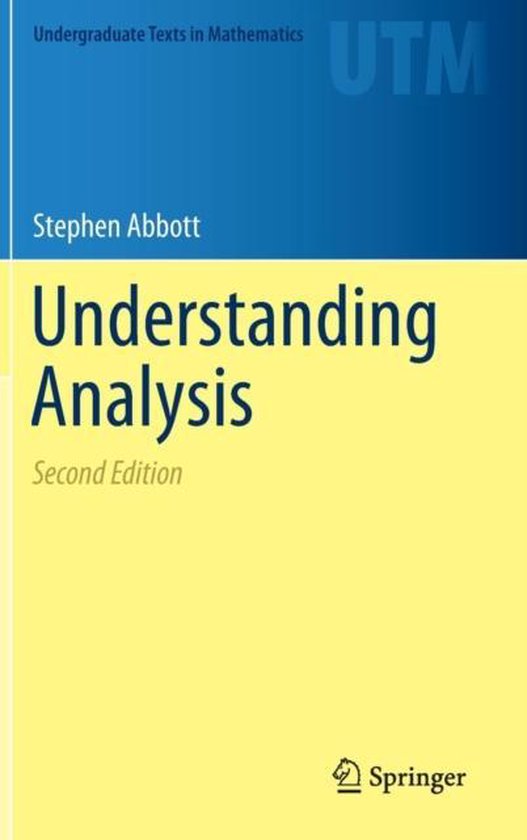Rbizo.com
Elementary analysis

Rubriek: Textual/Printed/Reference Materials - Boek
Prijs: € 48.14
Rating: 0/5
☆
☆
☆
☆
☆
Verzending:
Uiterlijk 3 januari in huis
Uiterlijk 3 januari in huis
Inhoudsopgave:
Omschrijving:
For three decades, this classic has been a must-have textbook for transitional courses from calculus to analysis, celebrated for its clear style and simple proofs. This edition adds material on the irrationality of pi, the Baire category theorem and more.
- Bekijk alle specificaties
Beste alternatieven voor u.

Elementary Analysis
Rating: 0 / 5
Prijs:50.99 Nu voor: € 48.14
Prijs:
For three decades this classic has been a must have textbook for transitional courses from calculus to analysis celebrated for its clear style and simple proofs this edition adds material on the irrationality of pi the baire category theorem and more
Verwacht over 3 weken .. MEER INFO

Reading, Writing, and Proving
Rating: 0 / 5 | Prijs: € 65.35
This book which is based on p lya s method of problem solving aids students in their transition from calculus or precalculus to higher level mathematics reading writing and proving is designed to guide mathematics students during their transition from algorithm based courses such as calculus
Uiterlijk 3 januari in huis .. MEER INFO

Understanding Analysis
Rating: 0 / 5 | Prijs: € 30.39
Acutely aware of the need for rigor the student is much better prepared to understand what constitutes a proper mathematical proof and how to write one fifteen years of classroom experience with the first edition of understanding analysis have solidified and refined the central narrative of the se
Uiterlijk 27 december in huis .. MEER INFO
Product specificaties:
Taal: nl
Uitvoering: Paperback
Oorspronkelijke releasedatum: 01 januari 2013
Aantal pagina's: 412
Illustraties: Nee
Hoofdauteur: Kenneth Allen Ross
Tweede Auteur: Kenneth Allen (University Of Oregon, Usa) Ross
Hoofduitgeverij: Athenaeum Uitgeverij
Fabrikantgegevens: De informatie van de fabrikant is momenteel niet beschikbaar.
AI-gegenereerd: Nee
Editie: 2
Extra groot lettertype: Nee
Product breedte: 155 mm
Product hoogte: 24 mm
Product lengte: 235 mm
Studieboek: Ja
Verpakking breedte: 155 mm
Verpakking hoogte: 24 mm
Verpakking lengte: 235 mm
Verpakkingsgewicht: 638 g
EAN: 9781493901289